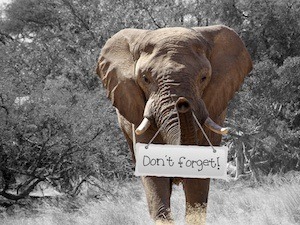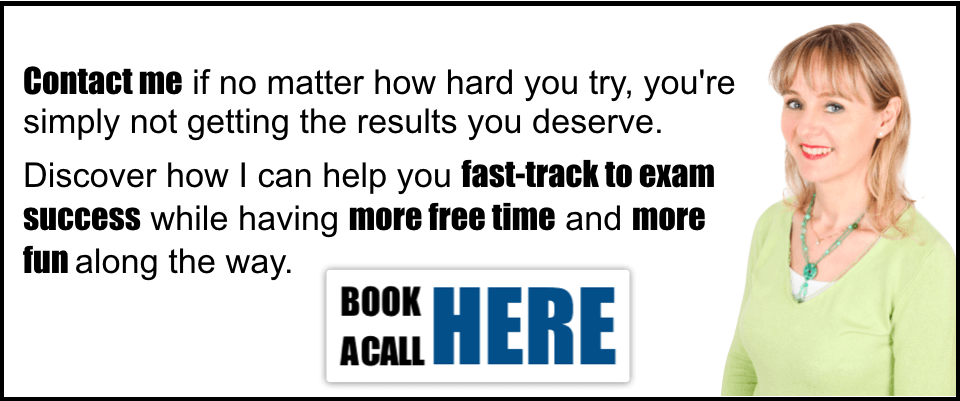 Did you know that if you write less, you’ll remember more?
Did you know that if you write less, you’ll remember more?
Well, it’s true!
In fact, some therapists encourage their clients to forget their troublesome past by getting them to write in minute detail, over and over again, all their complaints about it – until they forget what they’re supposed to be complaining about!
There are faster ways to help clients leave the past behind them and create the future they want, but my point is the more you write the more you forget. So if your study strategy is to copy out the contents of your textbook, word for word, hoping that it will stick, my guess is that you are frequently disappointed!
Of course, the same with any study strategy, if it’s all you’ve got, then what else can you do?
I’m about to answer that question right now!
Here’s what you need to know:
Only put seven or fewer bits of information on one page of study notes. Your brain has an infinite capacity to remember an infinite number of pages PROVIDING (and yes, I’m shouting!) you put seven or fewer bits of information on any one page. Write less, remember more!
Use images, symbols and drawings in place of words. More than half of your brain is involved in the visual process. That’s a lot of brainpower! We’ve evolved to process what we see very quickly. And evolution has us remember what we see more efficiently, more accurately and more easily than what we read.
So split into small chunks the information you are trying to learn in this study session.
That might feel very strange at first if you’re not used to doing it, but every single person that I’ve worked with who has tried it finds that it works better for them than their old way of doing things.
Even more so, it means that each set of study notes will be unique to that chunk of information and that in itself will make it easier to remember later on.
Think shopping list. Imagine you volunteered to go to the supermarket and your partner gave you their shopping list, talking you through where you’d find each item, what size, brand, flavour etc they mean by each item written on it.
And imagine you accidentally left that list behind, only just discovering that now you’re in the shop. With just the keywords on that list, and having talked about what each word means, what’s the chance of you remembering the vast majority of items required?
Quite high, I expect.
But supposing, instead of a list consisting of keywords only, every word of that conversation was recorded on paper, word for word, and now that was what you were trying to remember instead.
I strongly suspect that now you’re trying to visualise what was on that piece of paper, you wouldn’t be able to see the wood for the trees.
So why would you do that to yourself when you are deliberately trying to learn information for your exam?
Write less, remember more!
Use keywords only and draw images and symbols instead of words wherever possible. And use plain paper rather than lined, to encourage you to set your notes out using patterns, colour, shapes and other visual ideas.
If you’ve ever said “I’m not always good with names… but I never forget a face,” you’ll appreciate it’s the same mechanism that will have you remember the appearance of your study notes if you make them more visual than wordy.

